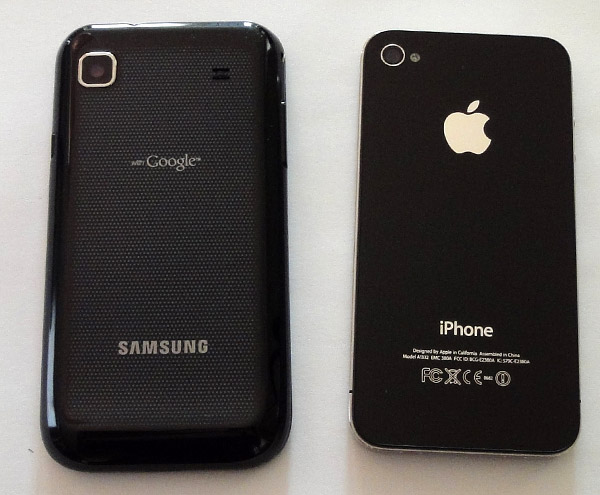
On Friday last week, a nine member Jury in the US has awarded Apple $1.05 billion in a landmark patent infringement suit against Samsung. The jury was unanimous that in its finding that Samsung was guilty of “willful” violations of a number of Apple’s patents in the creation of its own mobile products.
Samsung and Apple both issued statements after the jury’s decision.
This is what Apple had to say:
“We are grateful to the jury for their service and for investing the time to listen to our story and we were thrilled to be able to finally tell it. The mountain of evidence presented during the trial showed that Samsung’s copying went far deeper than even we knew. The lawsuits between Apple and Samsung were about much more than patents or money. They were about values. At Apple, we value originality and innovation and pour our lives into making the best products on earth. We make these products to delight our customers, not for our competitors to flagrantly copy. We applaud the court for finding Samsung’s behavior willful and for sending a loud and clear message that stealing isn’t right. [Emphasis added]
Samsung, on its part, had this to say:
“Today’s verdict should not be viewed as a win for Apple, but as a loss for the American consumer. It will lead to fewer choices, less innovation, and potentially higher prices. It is unfortunate that patent law can be manipulated to give one company a monopoly over rectangles with rounded corners, or technology that is being improved every day by Samsung and other companies. Consumers have the right to choices, and they know what they are buying when they purchase Samsung products. This is not the final word in this case or in battles being waged in courts and tribunals around the world, some of which have already rejected many of Apple’s claims. Samsung will continue to innovate and offer choices for the consumer.” [Emphasis added]
Meanwhile here in Kenya, reactions to the jury decision were mixed. For instance, take this conversation we spotted on twitter:
@moseskemibaro It is "unfortunate that patent law can be manipulated to give one company a monopoly over rectangles with rounded corners"
— Joseph Akello (@JosephAkello) August 26, 2012
@josephakello true indeed but apple quite literally reinvented the mobile phone and their view is to protect their innovations.
— Moses Kemibaro (@moseskemibaro) August 26, 2012
@moseskemibaro True…only that Apple is paranoid. Not good that way. "Copying" will not stop it from leading.
— Joseph Akello (@JosephAkello) August 26, 2012
As opinions remain divided on this issue, Dr. Isaac Rutenberg gives us his personal take on the impact of the jury’s decision in the Apple v. Samsung case below:
“Some commentators have said that this verdict will:
(1) stifle innovation;
(2) make Android and Samsung devices more expensive, and
(3) force users over to Apple products.
None of these arguments are without counter-arguments.
Regarding (1), it is possible that the verdict will in fact increase innovation. Had Samsung seen the popularity of the iPhone and smart phones in general, and endeavored to innovate around the iPhone patents rather than take the chance and steamroll through the patents, consumers would have benefited from a different device rather than a knock-off.
Regarding (2), it is almost guaranteed that Samsung devices will become less available and/or more expensive. Samsung will have to license Apple’s patents if they wish to sell the offending devices, or Samsung can pull their offending products from the shelves. So in a sense, consumers of Samsung (and Adroid) devices will pay for this verdict. But the lower price of Samsung’s devices was artificially low and arguably resulted because Samsung didn’t need to undertake the research and development that Apple funded. This is the epitome of unfairness in a society that values original works and innovation.
Regarding (3), users always have the option to buy a product or not to buy a product. Users of smart phones may indeed be “forced” to use Apple products because they are the most innovative, and because the innovations in iPhones can only be found in iPhones. This is true, though, only until the patents expire, or the next improvement hits the market. If Samsung wanted market share, they should have created innovative products that weren’t covered by the Apple patents.
On the other hand, Samsung’s gamble could have paid off (e.g., the patents found to be invalid, or found to be too narrow to cover Samsung’s products). In such a case Apple would have surely cried foul, but the victor gets to write history and Samsung would have hailed the decision as “good for consumers.” Such a claim is even more difficult to substantiate than Samsung’s current claim that the verdict is bad for consumers. Invalid patents are not good for anybody – they are expensive to litigate, and therefore costly to consumers and companies. They also give a company a false sense of protection.”